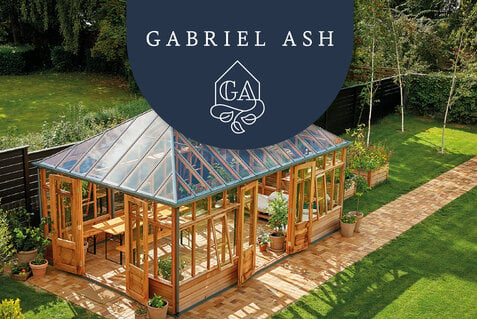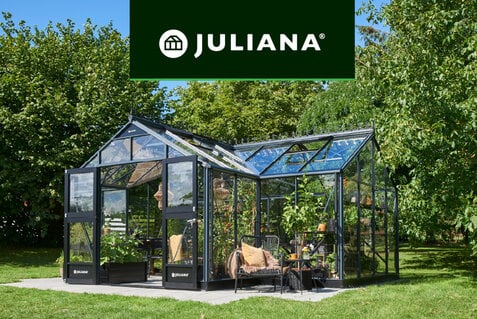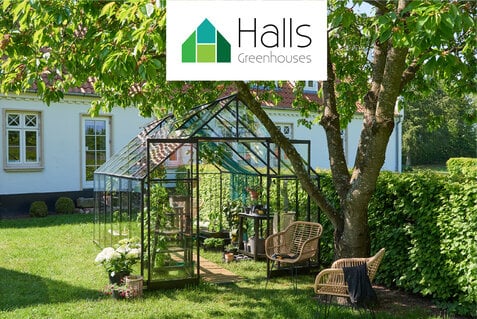Project Cheptigit Primary School, Kenya
In February 2023, Juliana's CEO and owner, Nikolaj Stærmose, and his family were in Kenya to install three Juliana Gartner 21.4 m² greenhouses at Cheptigit Primary School.
Published on the 7th of February 2023
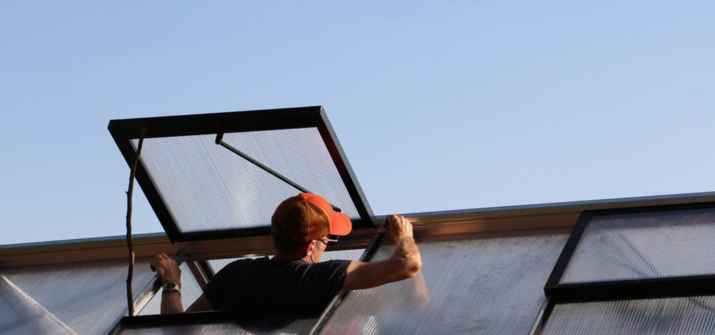
Before traveling to East Africa in 2017, I came across a retired couple from Denmark, who for years had run a school project in Kenya. During my travels, I saw just how impactful a simple effort can be, when determined and focused enough. The fundamental idea, that education is a premise for prosperity and well-being is not a new thought, but it was so incredibly life-affirming to see how it can be done without administrative costs, and how much can happen when good forces get together to create a change.
The couple Kis and Flemming Thybo are both retired from the educational sector. 14 years ago, they encountered a local headmaster in a small village, about 40 km outside the city Eldoret in northern Kenya. At first, there was no set plan for the project, but the passionate couple approached the matter with practicality. From the start, the fundamental thought has been that the teachers and management at the school know best, what is needed.
The school is a primary school with students from first to ninth grade. Back when the project first started, the school was in terrible condition. That is why the first big wish was new classrooms with proper flooring. That was meant to ensure a little more heat, but furthermore prevent the kids from getting worms in their feet from sitting on the bare ground. Kis and Flemming raised a lot of money in Denmark. Every time the amount of 30.000 DK was reached, it meant, there was enough for a new classroom, and the couple travelled to the school to help with the realisation of the new facilities. This method is still being used and to this day, money is being raised in many creative ways. Talks and sing-along concerts are reoccurring events, and the annual flea market has become a permanent source of income. Today, there are many private benefactors, who sponsor buildings and equipment, but also make contributions to the teachers’ salaries and tuition fees of the poorest children.
Today the school appears well kept, and there is now both an upper secondary school and a college. A Danish sponsor helped with installing solar cells at the school, which means the buildings can also be used in the evenings, since it gets dark around 7pm all year around.

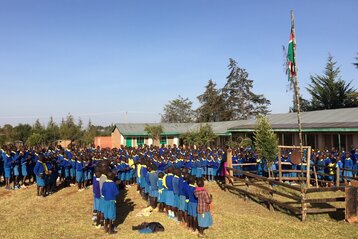

Creating a School Garden
The idea of a garden in connection with the school started about three years ago. A school garden should have several objectives, which includes providing the students with a daily meal, which is not always a given, as well as educational purposes. Therefore, the Juliana Group agreed to sponsor a school garden project in three stages. The first stage was the establishment of the framework, namely fences and tools, but also water tanks for collecting water. The first contribution was even enough to buy two cows, so that the school has a steady source of fresh milk.
Do Greenhouses Make Sense in Africa?
Most of us probably don’t think it makes sense to build greenhouses in Kenya, but actually it does make sense. A greenhouse functions like a climate screen, which protects the crops against wind, weather, and insects. The school is placed on a plateau, where it never becomes more than approx. 25°C during the day, and it gets quite cold during the night.
The next stage of the school garden project is to install three Juliana Gartner greenhouses. Each greenhouse has the size of 21,4 m2. Before Christmas, a container with the greenhouses was shipped to Africa and mid-February my family and I will travel to Kenya and help with setting up the three houses.
Nikolaj Stærmose
CEO and owner of Juliana Group A/S
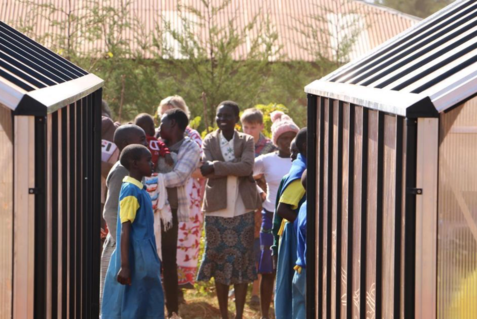
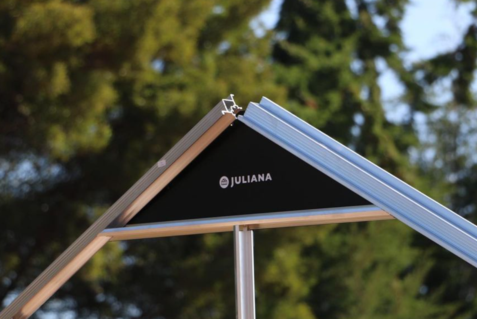
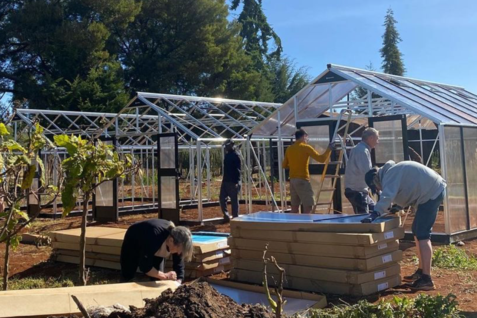
JULIANA GROUP
Juliana Group is a leading global supplier of quality residential greenhouses. Founded in 1963 by Mogens A. Stærmose in Odense, Denmark, the family-owned company is today owned by third generation, Nikolaj Stærmose. Headquarter and production remains Odense-based with subsidiaries in the UK and Germany and export to more than 20 countries.
’We help people grow’. That is why our brands Halls, Juliana, and Gabriel Ash all set the frame for experiences that are as natural as they are magical. Despite our long history, we’re future-focused and curious on how we can improve the sustainability of our greenhouses. Learn more about Juliana and find inspiration for life in the greenhouse in our inspirational universe.

